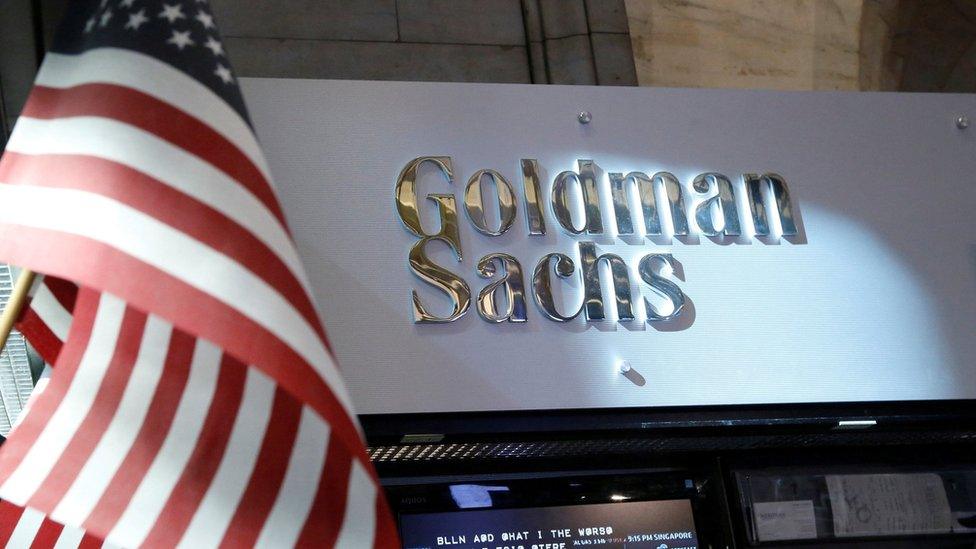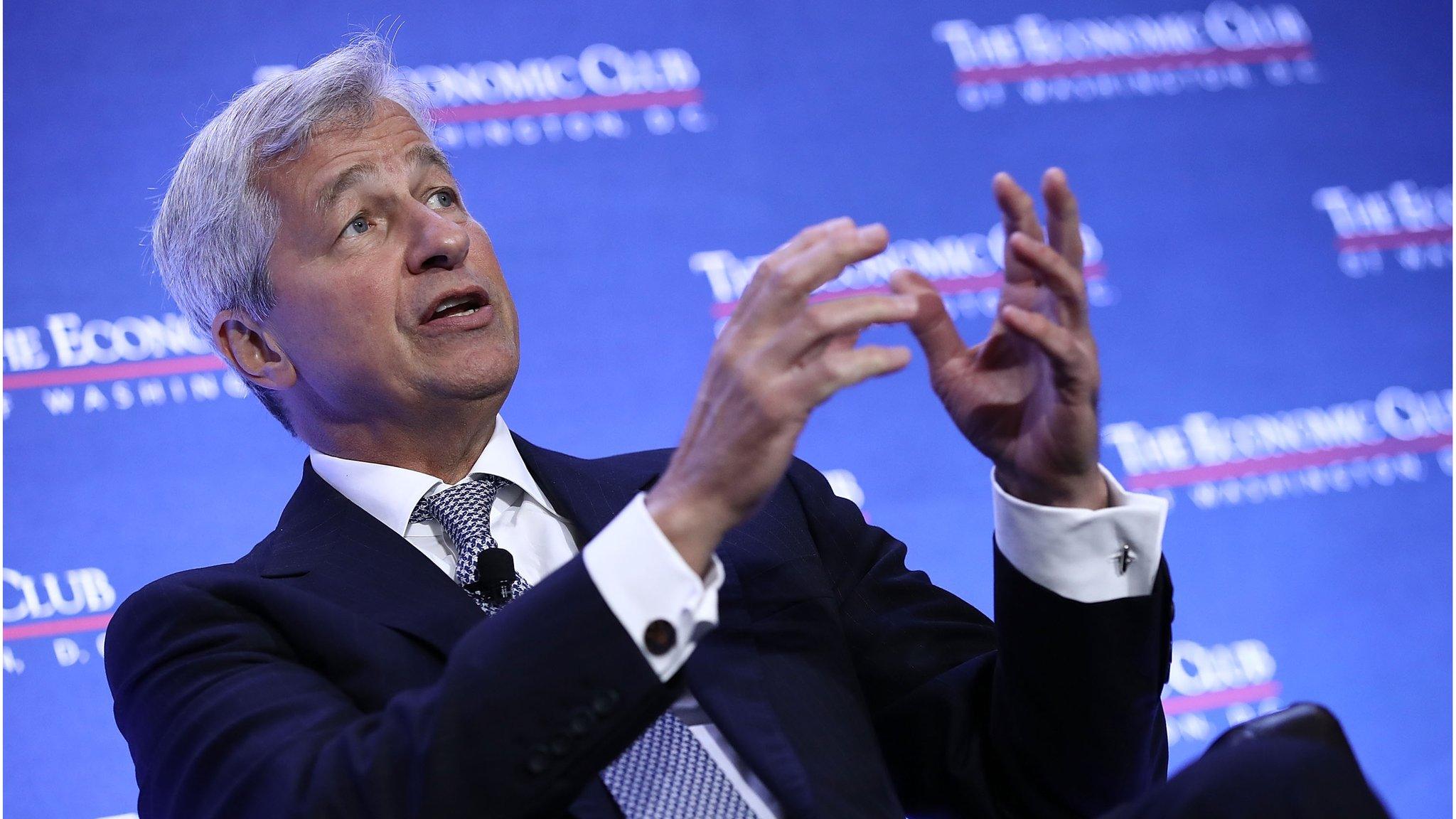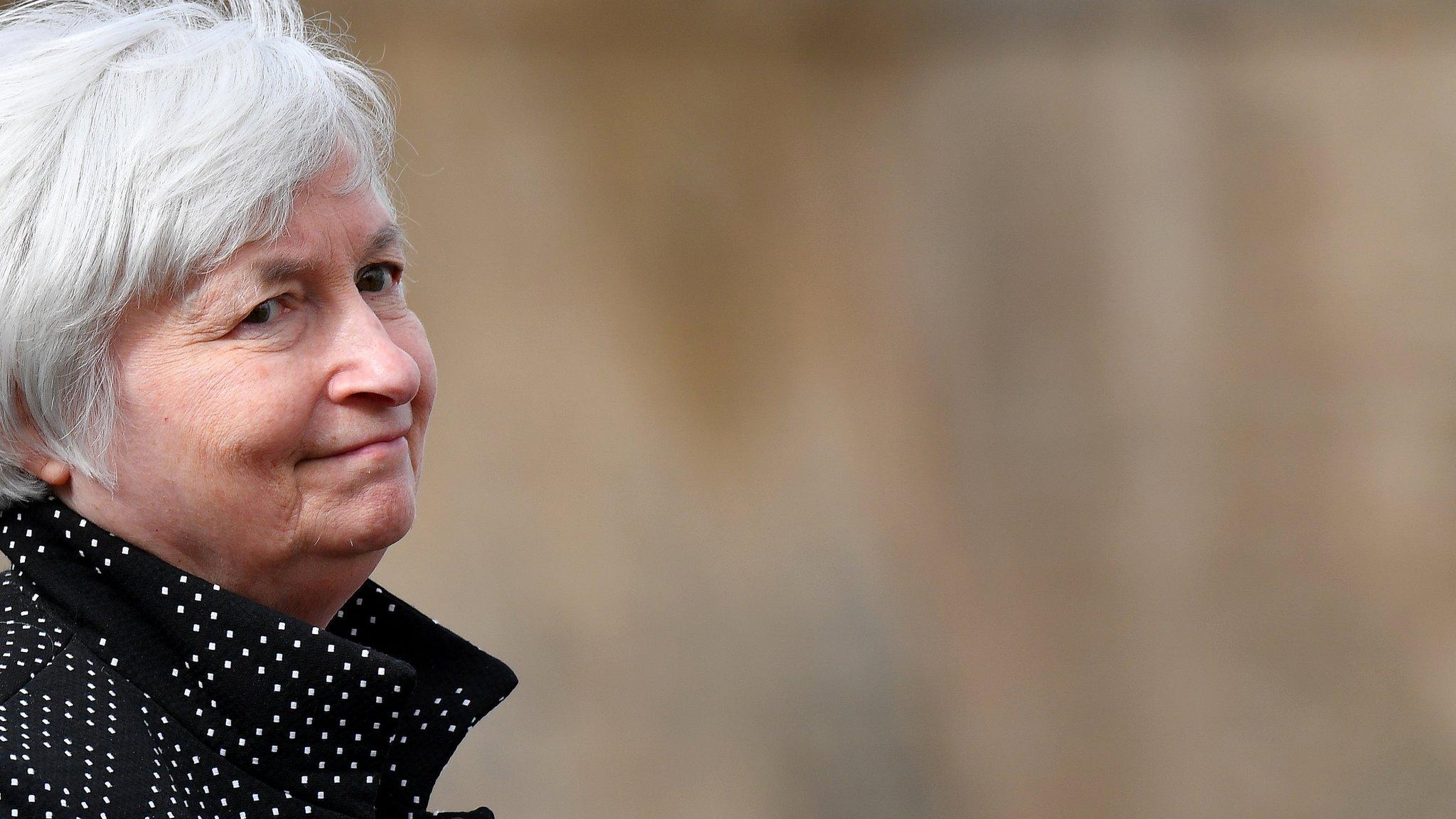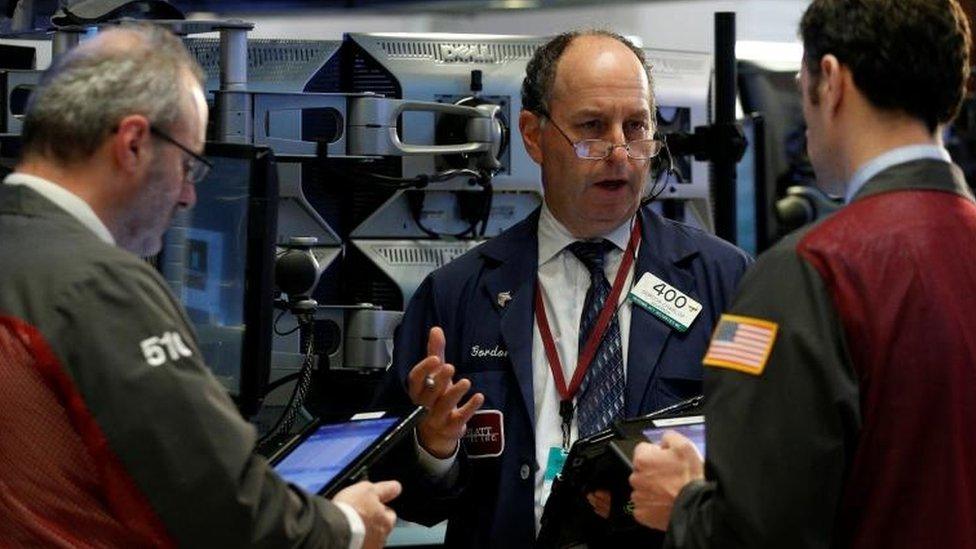Goldman Sachs hit by bond trading slide
- Published

Bond trading revenues at Goldman Sachs slid 40% in the second quarter, echoing similar declines at other US banks.
Revenue from trading fixed income, commodities and currencies was $1.16bn as the US increased interest rates and cut back on bond buying.
Total net revenues for the first half rose 12% to $15.91bn.
Separately, profits at rival Bank of America were boosted by tighter US interest rate policy.
Goldman posted profits of $1.83bn for the quarter, down from the $2.2bn reported in the first three months of 2017 and only slightly higher than the $1.82bn it reported for the same quarter last year.
Chief executive Lloyd Blankfein said the "mixed operating environment" continued into the second quarter. "Against that backdrop, we produced revenue growth and improved profitability for the first half of 2017, reflecting both the diversity and strength of our global businesses."
Goldman said it ranked first in worldwide mergers and acquisitions for the year-to-date and was also number one for issuing company shares. It got a critical boost from private equity investments.
But Goldman's commodities business had its worst quarter, continuing a slide that has previously alarmed investors.
"This is something that all of us are evaluating and making changes and working on," said Martin Chavez, the chief financial officer. "We know we need to do better."
Shares in Goldman fell 2.3% in New York to $223.84.
Goldman, one of Wall Street's most most famous financial institutions, escaped from the financial crisis relatively unscathed.
But its growth has been more limited in recent quarters, due partly to difficulties in its fixed income, currency and commodities unit.
Mr Chavez said demand from active investors had traditionally driven that business, but those companies have pulled back amid relatively low market fluctuation.
Active management firms are also under pressure as investors switch funds away from expensive stock-pickers to passive funds that track indexes such as the S&P 500.
Mr Chavez also said Goldman's own performance in commodities - a business many of its rivals have shifted away from in recent years - has been weak.
"We didn't navigate the market as well as we aspire to or as well as we have in the past," he said.
Bank of America
At Bank of America, net profit for the second quarter was $4.9bn, 11% higher than for the same period a year ago.
Much of the increase in profit was due to a rise in net interest income following a rise in US interest rates. The firm said growth in mobile banking - which has lower costs - has also helped its bottom line.
Bank of America chief executive Brian Moynihan said: "Against modest economic growth of 2%, we had one of the strongest quarters in our history."
- Published7 July 2017

- Published14 July 2017

- Published12 July 2017

- Published12 July 2017

- Published6 July 2017
